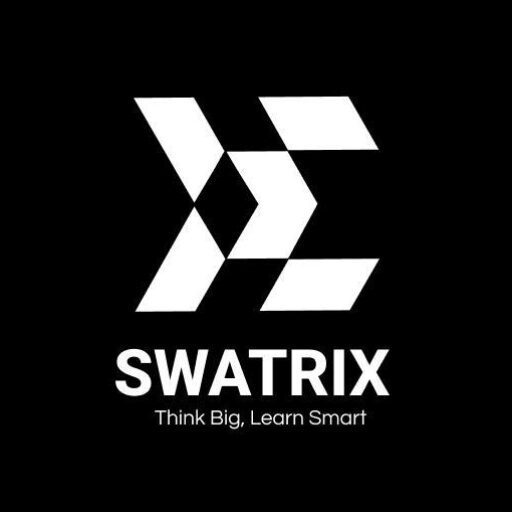Artificial Intelligence
Artificial Intelligence (AI) involves the emulation of human cognitive functions by machines, particularly computer systems. It integrates a range of methodologies, including machine learning, natural language processing, computer vision, and robotics, to empower machines to execute tasks that traditionally necessitate human intellect. AI systems are capable of processing extensive datasets, identifying patterns, forecasting outcomes, and enhancing their performance through experiential learning.
Reviews 4.7 (253 user ratings):
4.721 students
Price:
₹ 5000/-
In recent times, AI has been extensively embraced across diverse sectors, fundamentally altering business operations and customer interactions. From customized recommendation engines in online retail to self-driving cars in the transport sector, AI-driven innovations are reshaping industries and fostering progress. Nonetheless, ethical dilemmas and potential hazards linked to AI, such as workforce displacement and algorithmic biases, underscore the necessity for conscientious AI development and implementation to secure advantageous societal results.

Course Descriptions :
AI Fundamentals and Overview" provides a comprehensive introduction to artificial intelligence, tracing its evolution, elucidating core principles, and examining its applications. The curriculum explores various AI methodologies, including machine learning, natural language processing, and computer vision, offering a broad perspective on AI's societal and industrial influence.
Programming for AI with Python" is a course aimed at imparting the essentials of the Python programming language, customized for artificial intelligence applications. Learners are introduced to fundamental Python concepts and libraries prevalent in AI development, such as NumPy, Pandas, and TensorFlow. The course emphasizes hands-on coding tasks and real-life scenarios to prepare participants for deploying AI algorithms and models using Python.
Mathematical Foundations for AI" addresses crucial mathematical principles necessary for comprehending and applying AI algorithms. The syllabus includes linear algebra, calculus, probability theory, and optimization techniques, specifically adapted for AI applications.
Data Management and Graphical Representation for AI" imparts vital skills for handling and graphically representing data in AI contexts. It encompasses data preprocessing strategies and visualization techniques to facilitate effective AI model development.
Core Principles of Machine Learning" introduces the fundamental concepts and methodologies underlying machine learning algorithms. It investigates supervised and unsupervised learning, model assessment, and optimization strategies, laying a practical groundwork for advanced studies.
Supervised learning employs annotated data to educate algorithms for forecasting or categorizing, extrapolating patterns from established results. Methods include regression for continuous forecasting and classification for categorical determinations, extensively utilized in sectors like finance and healthcare for endeavors such as risk evaluation and customer classification.
Unsupervised learning scrutinizes unannotated data to identify patterns or frameworks without direct instruction. Techniques such as clustering and dimensionality reduction aid in revealing concealed insights within intricate datasets, applicable in areas like customer classification and anomaly identification.
Introduction to Neural Networks" presents the elementary aspects of neural networks, discussing their configuration, operation, and training processes. The course highlights practical uses, offering foundational knowledge for comprehending and deploying neural networks in AI and machine learning initiatives.
Deep Dive into Convolutional Neural Networks (CNNs)" explores CNNs, pivotal for visual computing tasks. Learners are acquainted with their structure, functionalities, and training processes, concentrating on practical uses such as image identification and object recognition.
Exploring Recurrent Neural Networks (RNNs) and Transformers" addresses advanced sequential models essential for natural language processing. Learners study their architecture, training, and applications, focusing on activities like language modeling. The course stresses practical deployment and investigates the latest advancements in textual analysis.
Introduction to Reinforcement Learning" outlines the basic principles and methods in reinforcement learning (RL). Participants are introduced to RL agents, environments, and incentive systems, along with pivotal algorithms like Q-learning and policy gradients. The course underscores practical uses in domains such as gaming, robotics, and autonomous systems.
Neural Networks Essentials" covers the basic concepts, structure, and training techniques of neural networks. Participants understand how neural networks interpret data and generate predictions, with practical applications in deep learning and AI.
Advanced Techniques in Natural Language Processing" investigates complex methods for processing natural language. Participants delve into subjects like semantic embeddings, attention frameworks, and transformer-based architectures. The course concentrates on practical uses in textual analysis and provides insights into the latest NLP innovations.
Advanced Concepts in Computer Vision" investigates intricate ideas and techniques in visual computing. Participants examine advanced subjects such as object identification, image partitioning, and image synthesis. The course highlights practical applications in areas like self-driving vehicles, diagnostic imaging, and enhanced reality.
Practical Applications of AI" offers perspectives on the real-world uses and consequences of artificial intelligence. Participants investigate practical instances across various sectors, including healthcare, finance, and transport. The course addresses challenges, prospects, and ethical issues in implementing AI solutions, providing valuable viewpoints on AI's societal and business impacts.
Hands-On Projects" is a practical course centered onapplying acquired skills to real-life situations. Participants engage in practical projects across various fields, such as data scrutiny, machine learning, and AI applications. The course accentuates problem-solving, teamwork, and communication abilities, enabling participants to demonstrate their proficiency and compile a portfolio of significant projects."Hands-On Projects" is a practical course centered on applying acquired skills to real-life situations. Participants engage in practical projects across various fields, such as data scrutiny, machine learning, and AI applications. The course accentuates problem-solving, teamwork, and communication abilities, enabling participants to demonstrate their proficiency and compile a portfolio of significant projects.
This course includes:
- 30 hours on-demand video
- 6 months access
- Access on mobile and TV
- Free Webinar
- Certificate of completion
Student Testimonials for Artificial Intelligence Course
- Best Conference
- 100% Certified & Trusted
- Enjoy 24/7 World Class Support
The AI course opened my mind to real-world applications like image recognition and chatbots. The practical examples made it easy to grasp complex topics.
